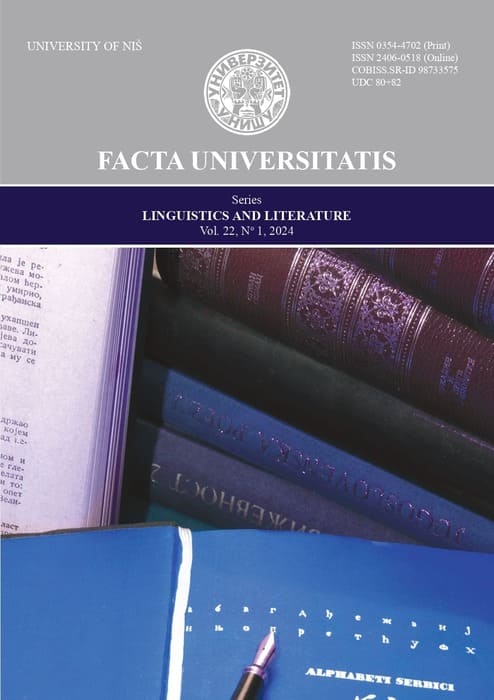PRAGMATIC AND SOCIOCULTURAL ADAPTATION IN LITERARY TRANSLATION
PRAGMATIC AND SOCIOCULTURAL ADAPTATION IN LITERARY TRANSLATION
Author(s): Zorica Trajkova Strezovska, Milan DamjanoskiSubject(s): Language and Literature Studies, Theoretical Linguistics, Applied Linguistics, Pragmatics, Sociolinguistics, Translation Studies, Stylistics
Published by: Универзитет у Нишу
Keywords: Pragmatics; socio-cultural background; translation; short stories; explicit instruction
Summary/Abstract: When translating a text written for a target audience with a different cultural background, the text necessarily undergoes pragmatic and sociocultural modification and adaptation. Pragmatically, the source text elements need modification to meet the needs of the new cultural and linguistic environment or the communicative situation (Zauberga 1994), and the target language audience (Neubert and Shreve 1992). Socioculturally, the peculiarities of a source text which may trigger sociocultural adaptation (Chang 2009, 95) are the different temporal and spatial perceptions of reality, the difference in the way notions are conceptualized, the syntactic and discourse organization of the two languages, as well as the choice of lexis. This article presents a pragmatic and rhetorical analysis aiming to unveil the pragmatic and sociocultural adaptations 10 students had to make when translating a short story from Macedonian into English. In addition, the students responded to a survey in which they described the challenges they faced while translating. The research highlighted the importance of thorough analysis of socio-cultural differences, pragmatic adaptations, and the context-based vs. language-based problems. Explicit instruction during translation classes is necessary to help raise students’ awareness of the problems that might arise due to lack of sociocultural background knowledge and pragmatic failure.
Journal: FACTA UNIVERSITATIS - Linguistics and Literature
- Issue Year: 22/2024
- Issue No: 1
- Page Range: 163-179
- Page Count: 17
- Language: English

